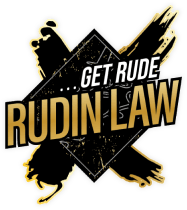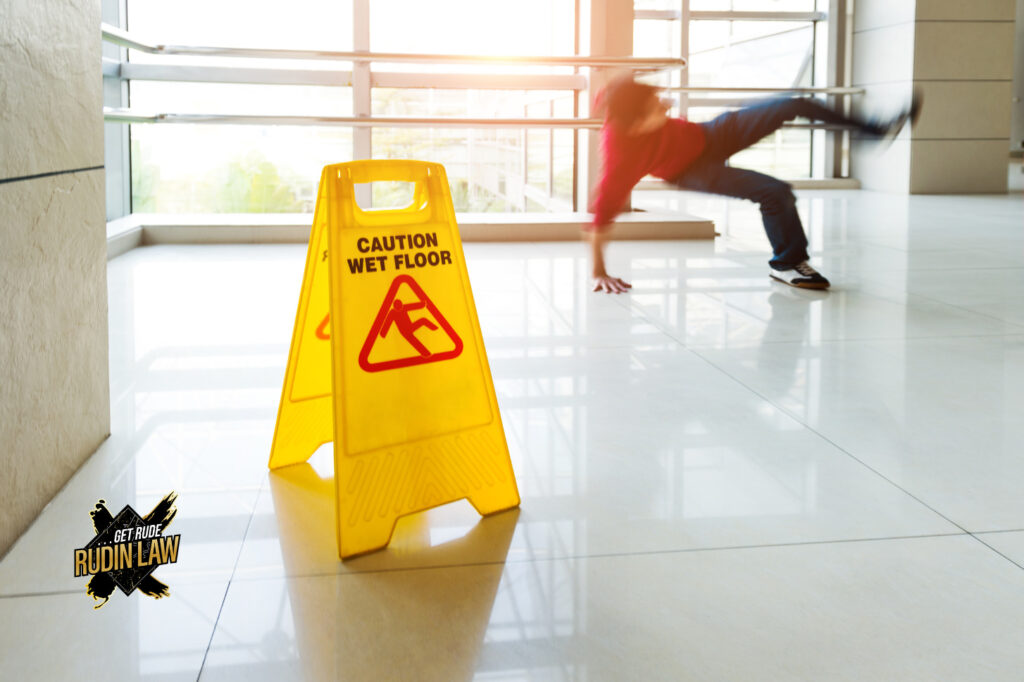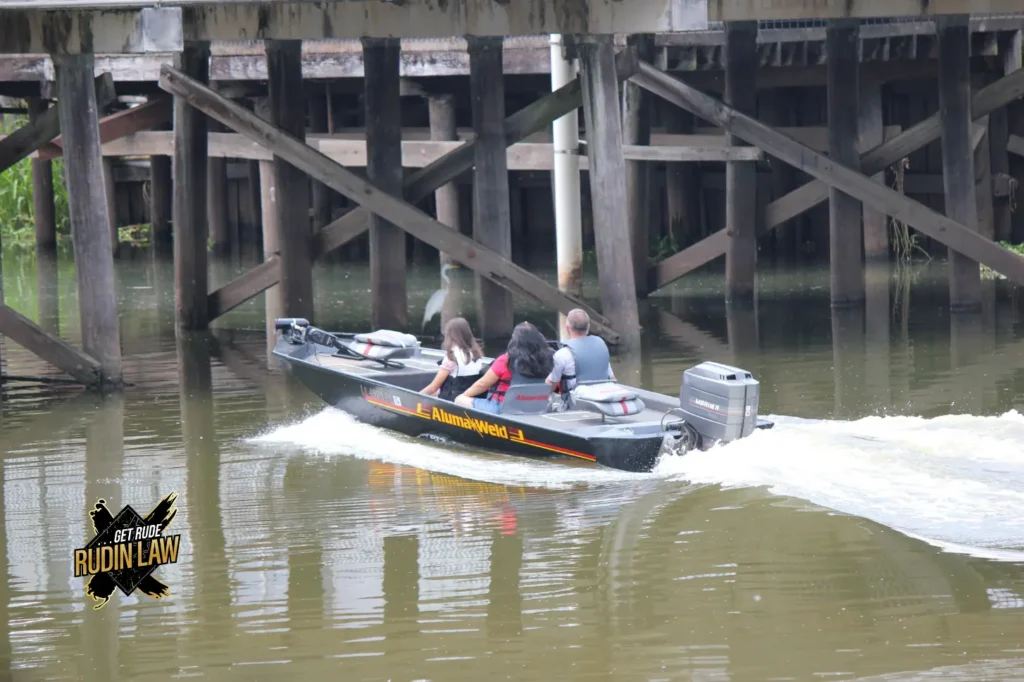MARINE ACCIDENTS
HURT ON THE WATER AND FEELING LOST AT SEA?
Stop Being Polite®... GET RUDE®
GET HURT WORKING ON THE WATER? GET HELP AND GET RUDE®.
The pressures associated with being an offshore worker are tremendous and an accident can push you to the edge. But never forget that RUDIN LAW is a phone call away when employers and insurance companies ignore your pleas.
The maritime or admiralty law is a set of U.S. laws and regulations that control activities in navigable waters and the open sea. The law covers things like transporting goods, marine salvage, and injuries to passengers and workers. One key part of marine injury law is protecting offshore workers who get injured or sick on the job.
Unfortunately, many times after a worker has been hurt, marine employers put their financial interests before the interests of the injured worker. If you’ve been injured while working on the water, you need to find a lawyer who will put your interests first and stand up to your employer and their insurance company when they try to dry dock your claim. At RUDIN LAW, we don’t just talk tough; we achieve results that truly make a difference.
Whether you’re in Louisiana, Texas, or anywhere else in the country, RUDIN LAW is ready to take on those responsible for your injuries and get you the justice you deserve. We are here to stand up for you and fight back against those who have hurt you. And to that, we say: it’s time to stop getting pushed you around; it’s time to stop being polite®… and GET RUDE® with RUDIN LAW.
TYPES OF OFFSHORE ACCIDENTS
Marine or offshore accidents can occur anywhere, from jack-up rigs and oil platforms to commercial fishing vessels and charter boats. The following are some examples of injury-causing events which occur on the water:
- Slips, Trips, and Falls: These accidents can happen due to wet, slippery decks, uneven surfaces, or obstacles in walkways.
- Man Overboard: Workers falling overboard can lead to drowning or serious injuries, especially in rough seas or cold waters.
- Crushing Injuries: These can occur when workers are caught between heavy equipment, cargo, or ship structures.
- Fires and Explosions: Vessels often carry flammable materials, and accidents can result from equipment malfunctions, improper handling of hazardous substances, or electrical faults.
- Collisions and Groundings: Accidents involving the vessel striking another object, another vessel, or running aground can cause severe injuries and structural damage.
- Chemical Exposure: Workers may be exposed to hazardous chemicals used in cleaning, maintenance, or transported cargo leading to respiratory issues, burns, or poisoning.
- Lifting and Carrying Injuries: Handling heavy loads can result in back injuries, strains, or sprains due to improper lifting techniques or inadequate equipment.
- Repetitive Strain Injuries: Repetitive tasks can cause musculoskeletal disorders, such as tendonitis or carpal tunnel syndrome.
- Machinery Accidents: Injuries from operating or working near heavy machinery, such as winches, cranes, and engines, can include cuts, amputations, or entanglement.
- Electrical Hazards: Electrical malfunctions or improper handling of electrical equipment can lead to shocks, burns, or electrocution.
- Exposure to Harsh Weather Conditions: Working in extreme weather can lead to hypothermia, heatstroke, or frostbite.
- Confined Space Accidents: Working in enclosed areas like tanks or engine rooms can lead to asphyxiation, poisoning, or entrapment.
- Diving Accidents: Commercial divers face risks such as decompression sickness, drowning, or injuries caused by interactions with marine life.
These events and others can lead to injuries. And if you’ve been injured while working on the water, you are entitled to fair compensation to make you whole.
THE NUMBERS ARE OVERBOARD: A LOOK INTO MARINE WORKPLACE STATISTICS
According to the National Institute for Occupational Safety and Health report, the maritime industry in the United States employs 400,000 people. This workforce includes shipyard workers, longshoremen, marine transport workers, ship captains, marine terminal and port operators, seafood processors, commercial fishermen, aquaculture workers, commercial divers, and other maritime employees.
However, an earlier report had discovered that maritime workers have higher rates of work-related injuries, illnesses, and fatalities compared to other U.S. occupations.
The associated risks and responsibilities have made maritime workers extremely vulnerable to adverse health conditions.
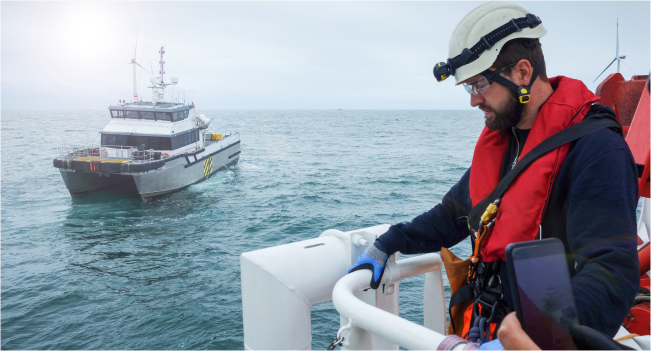
DON’T DELAY! BE WARY OF THE DEADLINE TO FILE YOUR LAWSUIT.
There are many factors that determine the deadline by which you must file your lawsuit under maritime/admiralty law. A maritime or admiralty suit might fall under state or federal jurisdiction. Whether the injury occurred on a vessel under navigation might determine if the Uniform Statute of Limitations for Maritime Torts will apply. The following guidelines can assist with identifying which deadline(s) may apply, but maritime law is complex, and it would be impossible to determine if your deadline has passed without speaking to a qualified attorney.
- The Uniform Statute of Limitations for Maritime Torts: This federal code applies to all lawsuits for personal injury to or death of a seaman (the injured marine worker) that arise out of a maritime tort. The law sets a three-year deadline to file after the event giving rise to the claim occurs. This date also determines the deadline for the seaman to bring his or her claim under the Jones Act and the Death on the High Seas Act, claims of unseaworthiness, and other claims made under general maritime tort law.
- The Jones Act: Under the Jones Act, a “seaman” is defined as member of the crew of a vessel (e.g., a tanker, freighter, jack-up rig, semi-submersible, towboat, tug, supply boat, crew boat, barge, lay barge, or fishing vessel), or someone assigned to a fleet of vessels by his employer. Other requirements must be met, such as: (i) the vessel must be in navigation, (ii) there must be a permanent connection with ship, and (iii) the worker must be aboard to aid in that navigation. Sometimes, even a person whose work is covered under the LHWCA may be treated as a Jones Act seaman.
Jones Act seamen are guaranteed medical care and disability benefits if they’re hurt on the job. In tragic situations where a worker dies due to a work injury, the Act provides financial support for their spouse or children. This law also compels employers to prioritize safety. They must create a safe work environment and equip employees with proper training and safety gear.
A lawsuit brough under the Jones Act must be filed within three years from the time of the accident, injury, or illness. However, there are some cases where this period may be reduced by administrative requirements based on ownership of the vessel.
- The Death On the High Seas Act: The Death on the High Seas Act, or DOHSA, allows families of those who died at sea to seek compensation under maritime tort law in certain circumstances. The deadline for these family members is three years from the day their loved one died. A spouse, child, parent, or dependent relative may be eligible for compensation under DOHSA.
- The Longshore and Harbor Workers Compensation Act: The LHWCA has a shorter statute of limitations than the Jones Act or DOHSA. LHWCA claimants may have only one year to file a claim after they are injured. This time begins to count down as soon as the employer files the required form with the Department of Labor to report the injury. In some cases where an employer was voluntarily paying benefits and compensation and then stopped, the injured person has a year to file from the time those benefits were cut off. This one- year deadline also applies to cases filed under the Outer Continental Shelf Lands Act and the Defense Base Act.
- Maintenance and Cure Deadline: Generally speaking, the deadline to bring a claim for maintenance and cure is three years under the Uniform Code. However, there are some cases where you may file a claim for Maintenance and Cure more than three years after the accident that caused your injury or illness. In those exceptional cases, the burden of proof will fall more heavily on the injured person to show why it was reasonable that he or she did not file the claim within the three-year period.
- State Laws: State laws may have longer or shorter deadlines for an injured marine worker to bring claims arising under state law. For example, as of July 1, 2024, claimants in both Louisiana and Texas have two years from the date of the accident to file a lawsuit.
No matter what law pertains to your injury claim, do not wait until the last minute to seek the advice of an attorney. Information and evidence gathering should begin immediately following the injury-causing event. The sooner you contact RUDIN LAW, the sooner we can begin building your case. We’re ready to act fast so you should be ready to call us as soon as disaster strikes.
No Fee Unless You Win
Get A Free Case Review Today! Click to Call (504) 500-5504


No Fee Unless You Win
Get A Free Case Review Today! Click to Call (504) 500-5504
Get Hurt? Get Help.

When a workplace accident occurs, even one on the water, it is critical to act fast because time is of the essence. But beyond acting fast, you need to act smart. Here is a quick list of tips you should follow to GET RUDE® after an accident.

CHECK FOR INJURIES
CHECK FOR INJURIES
Check if you are injured and unable to move. Immediately get medical help for any injuries. Your health and safety are the top priorities.

REPORT THE INCIDENT
REPORT THE INCIDENT
Notify the captain, supervisor, or relevant authorities on the vessel about the accident. This report is extremely crucial in your case.

COLLECT INFORMATION
COLLECT INFORMATION
Gather contact information from any witnesses and relevant details from your workplace.

DOCUMENT THE ACCIDENT
DOCUMENT THE ACCIDENT
Take photos of the scene, any hazardous conditions, and your injuries.

CONTACT RUDIN LAW
CONTACT RUDIN LAW
Contact RUDIN LAW for a FREE CASE EVALUATION so we can review your case and help you understand your legal options.
WHY YOU SHOULD TRUST RUDIN LAW
When you’ve been in a marine workplace accident, don’t fall prey to the insurance company. With RUDIN LAW on your side, we’ll ensure you get a fair shake, and here’s how:
Build Your Case From The Start
We gather all necessary evidence to support your claim.
Engage the Right Experts
We bring in top experts to support your claims.
Practice Aggressive, Swift Negotiation
We strive for the maximum compensation you deserve.
Ready for Courtroom War
If the insurance company won’t play fair, we won’t hesitate to take your case to court.
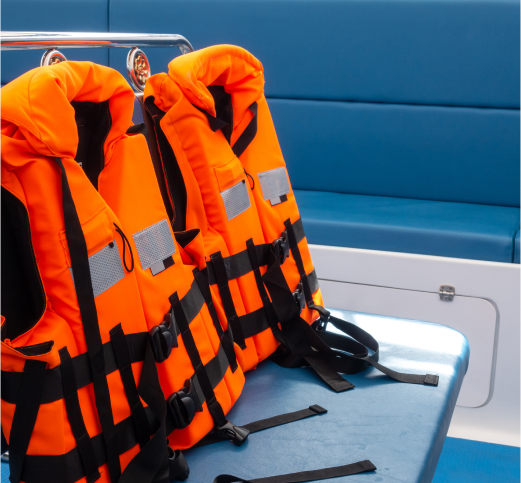
JUSTICE FOR YOUR INJURIES
Injuries happen even in workplaces that are the strictest about marine safety. And any incident can result in a severe injury. At RUDIN LAW, we believe no event is too small and no injury is too minor. From soft tissue injuries to serious impairments, we’ve got your back. We fight to get you the treatment you need and the compensation you deserve so you can back to your before.
Call us today at (504) 500-5504(504) 500-5504 and let us fight for the compensation you deserve. And remember, it’s time to stop letting the insurance companies tell you how it is. It’s time to stop letting the insurance companies push you around. It’s time to stop being polite®… and GET RUDE® with RUDIN LAW.
Have a Legal Question?
RUDIN LAW is Just a Call, Click, or Text Away!
READY TO GET RUDE®?
GET A FREE CASE REVIEW

No Fee Unless You Win
Get A Free Case Review Today! Click to Call (504) 500-5504


No Fee Unless You Win
Get A Free Case Review Today! Click to Call (504) 500-5504
Real Clients, Real Reviews
Read more reviewsClient Testimonials

Contact Rudin Law
Ask a Question,
Describe Your Situation,
Request a Free Case Review
Contact Us And We’ll Tell You Everything You Need To Know!
Required Fields*
Your Information Is Safe With Us
We respect your privacy. The information you provide will be used to answer your question or to schedule an appointment if requested.
Recent Blogs
I Slipped and Fell at a Business Establishment in New Orleans. What Should I Do?
You didn’t plan on leaving the store in pain. One second you were walking to the checkout. The next, you were thinking, “ I slipped…
What You Need to Know About Louisiana Boating Regulations
Louisiana’s waterways are some of the most beautiful and most dangerous in the country. Whether you’re cruising Lake Pontchartrain, riding a personal watercraft on the…
How Can Crash Bars for Motorcycle Protect Me in Case of a Motorcycle Accident in LA?
At RUDIN LAW, we don’t play nice with insurance companies — we fight for motorcycle accident victims who are tired of being pushed aside. If…
